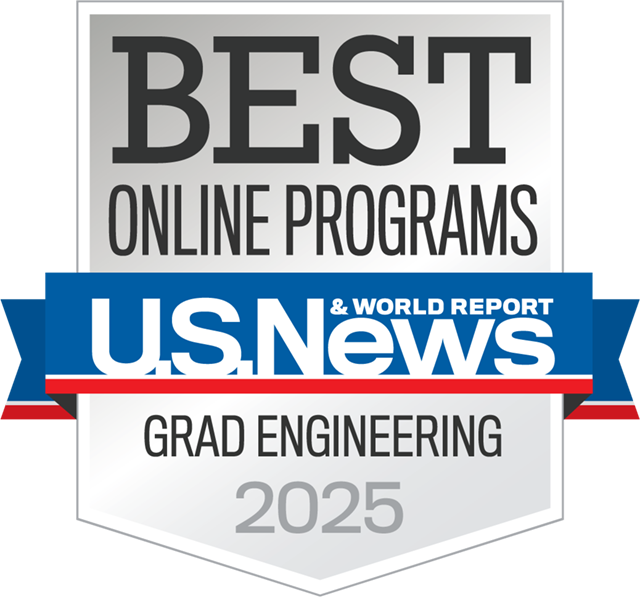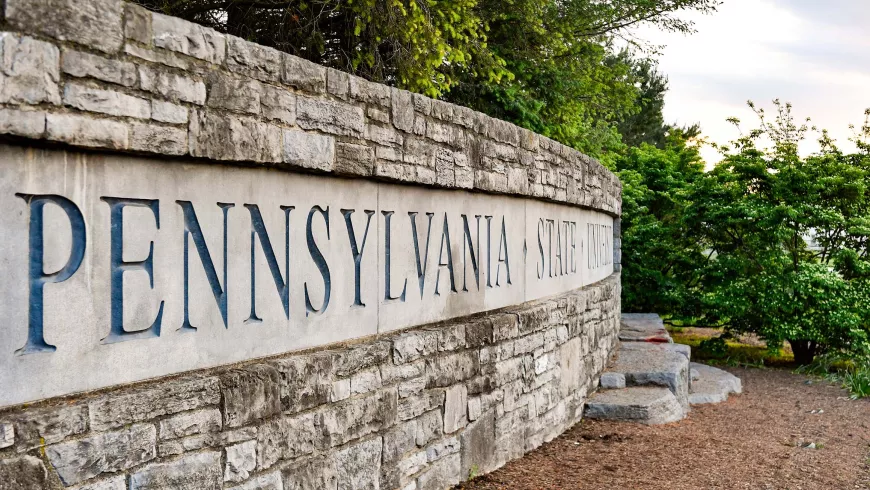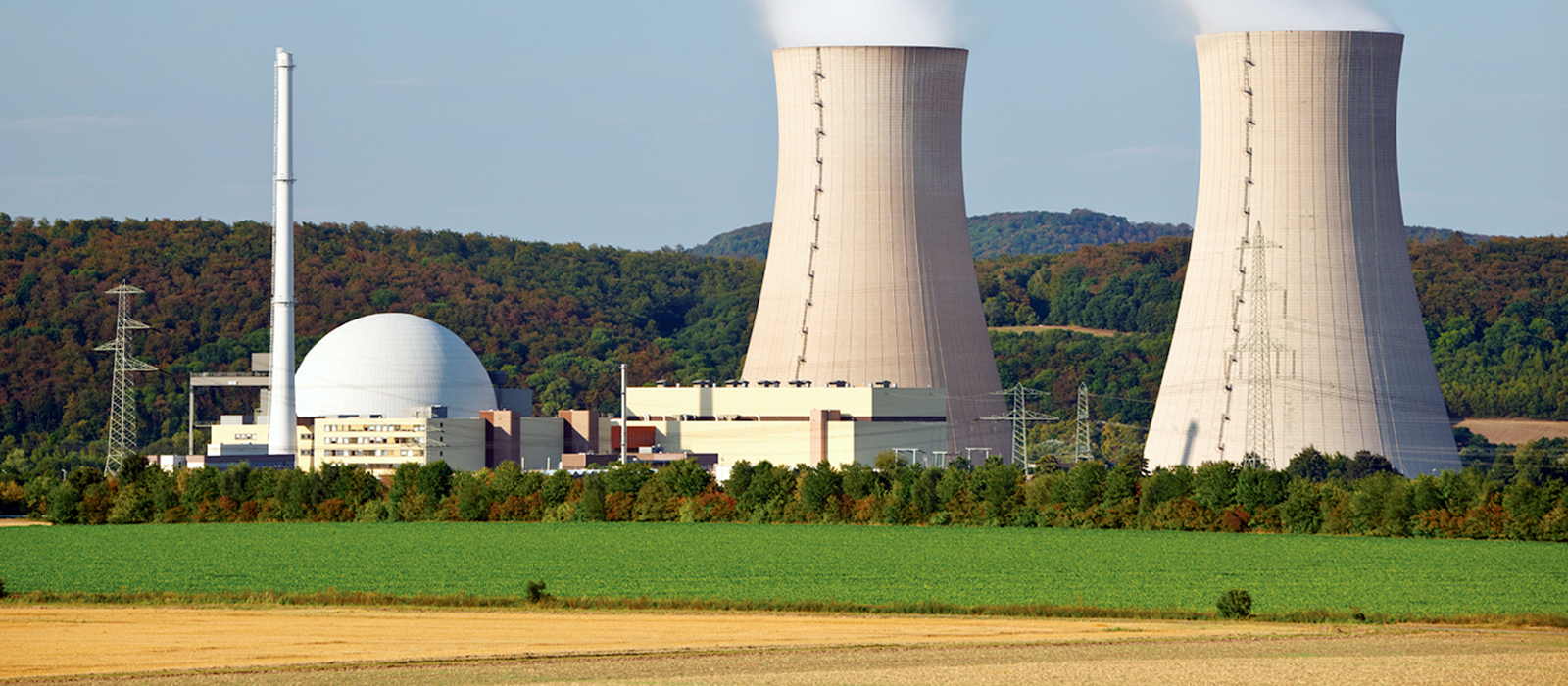Application deadline
Credits and costs
Nationally Recognized

Gain Skills to Help Shape the Future of a Growing Industry
Equip yourself with the nuclear engineering knowledge needed for a career in medicine, manufacturing, agriculture, or security.
Push the boundaries of nuclear engineering through innovative and groundbreaking research.
Develop and implement complex computer models and sophisticated monitoring systems to detect problems or monitor processes.
Work with the application of nuclear energy in diverse settings, including nuclear power plants, medical diagnostics, food production, national defense, and nuclear waste disposal.
Graduate Courses That Help You Gain Advanced Knowledge
Graduate Courses That Help You Gain Advanced Knowledge
Required courses include radiological safety, radioactive waste control, design principles of reactor systems, reactor engineering, nuclear fuel management, heat transfer, and other current subjects.
The degree is a non-thesis professional master's degree consisting of 27 credits of course work plus 3 credits of research/paper writing. Twelve of those credits must be in nuclear engineering courses, with at least 18 credits completed at the 500 level. No thesis is required for the M.Eng. in NE degree. Instead, you must take 3 credits of NUCE 596: Professional Topics in Nuclear Engineering, which represents formal recognition that you have completed a paper about an engineering subject. It must be approved by your adviser, a faculty reader, and the program chair.
Courses (30 credits)
- 3credits
Theory of radioactive decay processes, nuclear properties and structure, nuclear reactions, interactions of radiation with matter, biological effects of radiation.
- Prerequisite
CHEM 452 or PHYS 237 or NUCE 301
- 3credits
Statistical description of systems composed of large numbers of particles in the context of classical and quantum mechanics; basic concepts of probability theory and thermodynamics as they relate to statistical mechanics.
- Prerequisite
ME 300 or ME 201 or ME 202 or MATH 231 or CH E 303 or MATH 230
- 3credits
Nuclear reactor materials: relationship between changes in material properties and microstructural evolution of nuclear cladding and fuel under irradiation.
- Prerequisite
PHYS 214
- 3credits
Ionizing radiation, biological effects, radiation measurement, dose computational techniques, local and federal regulations, exposure control.
- Prerequisite
NUCE 301 or NUCE 405
- 3credits
Nature, sources, and control of radioactive wastes; theory and practice of disposal processes.
- Prerequisite
NUCE 301 or NUCE 405
- 3credits
Nuclear power cycles; heat removal problems; kinetic behavior of nuclear systems; material and structural design problems.
- Prerequisite
ME 410 and NUCE 301 or NUCE 401
- 3credits
Basic knowledge necessary for intelligent simulation and interpretation of simulations of transients in nuclear power plants.
- Prerequisite
ME 320 and MATH 251 and NUCE 302
- 3credits
This course is designed as an intensive course providing an introduction to nuclear engineering for graduate students with a non-nuclear background.
- Prerequisite
MATH 251 and Grad Standing
- Concurrent Enrollment
(MATH 230 or MATH 232) and PHYS 214
- 1credit
Laboratory experience in radiation detection and measurement.
- Note
This course is required for students who do not have a baccalaureate degree in nuclear engineering and have not fulfilled an equivalent course requirement. Students who do not have an undergraduate degree in nuclear engineering should consult with the Department of Nuclear Engineering to determine if they need to complete this course.
- 3credits
Thermal hydraulic fundamentals applied to power reactors, thermal analysis of fuel elements, and two-phase heat transfer in heated channels.
- Prerequisite
NUCE 430
- 3credits
In-depth analysis of the reactor core thermal hydraulics; computational methods and practical applications.
- Prerequisite
NUCE 430
- 3credits
Analytical kinetics and dynamics modeling for reactivity-induced transients; reactor accident kinetics methods for simple and complex geometries; experimental methods.
- Prerequisite
NUCE 301 and NUCE 302
- 3credits
Nuclear fuel inventory determination and economic value through the fuel cycle. Emphasis on calculational techniques in reactor, optimization, and design.
- Prerequisite
NUCE 302
- 3credits
Derivation of Boltzmann equation for neutron transport; techniques of approximate and exact solution for the monoenergetic and spectrum regenerating cases.
- Prerequisite
NUCE 403 or PHYS 406
- 3credits
Degradation of materials performance when exposed to the combination of high temperature, neutron irradiation, and aggressive electrochemistry found in nuclear reactors.
- Prerequisite
NUCE 409
- or:3credits
Degradation of materials performance when exposed to the combination of high temperature, neutron irradiation, and aggressive electrochemistry found in nuclear reactors.
- Prerequisite
NUCE 409
- 3credits
Fundamentals of the probability theory and statistics, analog and non-analog Monte Carlo methods and their applications, random processes, and numbers.
- Prerequisite
NUCE 403 or PHYS 406
- 3credits
Creative projects, including nonthesis research, which are supervised on an individual basis and which fall outside the scope of formal courses.
- 3credits
Concepts and techniques of analyses useful in evaluating engineering projects under deterministic and uncertain conditions.
- Prerequisite
IE 302 and IE 322 and IE 405
- 3credits
Thermal energy transfer mechanisms: conduction (steady, transient), convection (internal, external), radiation; lumped parameter method; heat exchangers; introduction to numerical methods.
- Prerequisite
(AERSP 308 and AERSP 311 and CE 360) or (ME 320 and CMPSC 200) or (CMPSC 202 and MATH 220) or (NUCE 309 and MATH 251)
- 3credits
Laminar and turbulent flow heat transfer in natural and forced convection systems.
- 3credits
Second semester of core sequence in fluid mechanics; continuation of boundary layers, stability, transition, turbulence, turbulent boundary layers, turbulence models.
- Prerequisite
ME 421, ME 521
- 3credits
Application of finite difference methods to the study of potential and viscous flows and conduction and convection heat transfer.
- 3credits
Introduces computational fundamentals, including digital logic; programming language, basic numerical analysis and data processing, as applied to mechanical simulation techniques.
Course Availability
If you're ready to see when your courses will be offered, visit our public LionPATH course search (opens in new window) to start planning ahead.
Advance Your Career

Advance Your Career
Nuclear engineers can work for development laboratories, national laboratories, electrical utility companies, colleges and universities, nuclear power plants, engineering design firms, factories that make nuclear equipment, and private and federal governmental research, energy, and defense agencies.
Job Titles Related to This Degree
The following roles are often held by people with this type of degree:
- Analytical Research Program Manager
- Nuclear Design Engineer
- Nuclear Engineer
- Nuclear Reactor Engineer
- Project Engineering Manager
Employment Outlook for Occupational Fields Related to This Degree
Estimates of employment growth and total employment are provided by the U.S. Bureau of Labor Statistics and are subject to change. While these occupations are often pursued by graduates with this degree, individual outcomes may vary depending on a variety of factors. Penn State World Campus cannot guarantee employment in a given occupation.
Architectural and Engineering Managers
Nuclear Engineers
Career Services to Set You Up for Success

From the day you're accepted as a student, you can access resources and tools provided by Penn State World Campus Career Services to further your career. These resources are beneficial whether you're searching for a job or advancing in an established career.
- Opportunities to connect with employers
- Career counselor/coach support
- Occupation and salary information
- Internships
- Graduate school resources
Ready to Learn More?
Get the resources you need to make informed decisions about your education. Request information on this program and other programs of interest by completing this form.
Ready to take the next step toward your Penn State master's degree?
Costs and Financial Aid
Costs and Financial Aid
Learn about this program's tuition, fees, scholarship opportunities, grants, payment options, and military benefits.
Graduate Tuition
Graduate tuition is calculated based on the number of credits for which you register. Tuition is due shortly after each semester begins and rates are assessed every semester of enrollment.
2024–25 Academic Year Rates
| How many credits do you plan to take per semester? | Cost |
|---|---|
| 11 or fewer | $1,143 per credit |
| 12 or more | $13,723 per semester |
2025–26 Academic Year Rates
| How many credits do you plan to take per semester? | Cost |
|---|---|
| 11 or fewer | $1,154 per credit |
| 12 or more | $13,860 per semester |
Financial Aid and Military Benefits
Some students may qualify for financial aid. Take the time to research financial aid, scholarships, and payment options as you prepare to apply. Federal financial aid may only be used to pay for credits used to satisfy program requirements.
Military service members, veterans, and their spouses or dependents should explore these potential military education benefits and financial aid opportunities, as well.
Additional Cost of Attendance Details
To view the detailed list of cost of attendance elements:
- visit the Tuition Information site
- click the plus sign to expand the table
- select a semester from the World Campus row
Technical Requirements
Review the technical requirements for this program.
You must also have installed:
- Adobe Acrobat PDF Writer
- Windows Media Player version 11
To complete assignments, you will also need the ability to scan and upload assignments and projects, and upload and download files up to 500MB.
Note on Operating Systems:
- If you use Vista, please note that the Vista 64 bit OS does not support the Cisco VPN Client, which is required for completing online lab assignments.
- Mac OS computers are not supported in all courses.
Who Should Apply?
If you have a bachelor's degree in an engineering discipline or the applied sciences, you can prepare for career advancement with the Master of Engineering in Nuclear Engineering.
Set Your Own Pace

Set Your Own Pace
Whether you are looking to finish your program as quickly as possible or balance your studies with your busy life, Penn State World Campus can help you achieve your education goals. Many students take one or two courses per semester.
Our online courses typically follow a 12- to 15-week semester cycle, and there are three semesters per year (spring, summer, and fall). If you plan to take a heavy course load, you should expect your course work to be your primary focus and discuss your schedule with your academic adviser.
To Finish Your Degree in One to Two Years
- Take 3–4 courses each semester
To Finish Your Degree in Two to Three Years
- Take 2–3 courses each semester
To Finish Your Degree in Three to Four Years
- Take 1 course each semester
Timelines may vary based on course availability.
Convenient Online Format
This program's convenient online format gives you the flexibility you need to study around your busy schedule. You can skip the lengthy commute without sacrificing the quality of your education and prepare yourself for more rewarding career opportunities without leaving your home.
A Trusted Leader in Online Education

Penn State has a history of more than 100 years of distance education, and World Campus has been a leader in online learning for more than two decades. Our online learning environment offers the same quality education that our students experience on campus.
Information for Military and Veterans

Are you a member of the military, a veteran, or a military spouse? Please visit our military website for additional information regarding financial aid, transfer credits, and application instructions.
How to Apply to Penn State

How to Apply to Penn State
Apply by April 15 to start May 19
Application Instructions
Deadlines and Important Dates
Complete your application and submit all required materials by the appropriate deadline. Your deadline will depend on the semester you plan to start your courses.
Summer Deadline
Apply by April 15 to start May 19Fall Deadline
Apply by July 15 to start August 25Spring Deadline
Apply by October 15 to start January 12
Steps to Apply
For admission to the J. Jeffrey and Ann Marie Fox Graduate School, an applicant must hold either (1) a baccalaureate degree from a regionally accredited U.S. institution or (2) a tertiary (postsecondary) degree that is deemed comparable to a four-year bachelor's degree from a regionally accredited U.S. institution. This degree must be from an officially recognized degree-granting institution in the country in which it operates.
It is expected that students will have a bachelor of science degree in a suitable engineering field. Admission decisions will also be based on relevant work experience and recommendation letters.
The program contains a number of courses requiring a solid background in mathematics typically found in an undergraduate program in engineering, physics, chemistry, mathematics, or computer science, with at least two semesters of calculus. Students with other undergraduate majors who have a strong background in mathematics may apply. The admissions committee will consider the academic background, as evidenced by the transcript, as part of the overall application.
If you do not have a baccalaureate degree in nuclear engineering and have not fulfilled an equivalent course requirement, you will need to complete NUCE 497: Radiation and Measurement Detection Lab as part of the program requirements. NUCE 497 (1 cr) includes a 3 day residential laboratory experience at University Park campus.
You will need to upload the following items as part of your application:
Official transcripts from each institution attended, regardless of the number of credits or semesters completed. Transcripts not in English must be accompanied by a certified translation. If you are a Penn State alum, you do not need to request transcripts for credits earned at Penn State but must list Penn State as part of your academic history.
GPA and Test Scores — Official GRE test scores will be considered if submitted, but are NOT required. All applicants are expected to have earned a junior/senior grade point average of 3.0 or higher.
English Proficiency — The language of instruction at Penn State is English. With some exceptions, international applicants must take and submit scores for the Test of English as a Foreign Language (TOEFL) or International English Language Testing System (IELTS). Minimum test scores and exceptions are found in the English Proficiency section on the Fox Graduate School's "Requirements for Graduate Admission" page. Visit the TOEFL website for testing information. Penn State's institutional code is 2660.
References (3) — You will need to initiate the process through the online application by entering names, email addresses, and mailing addresses of three references. Upon submission of your application, an email will be sent to each reference requesting they complete a brief online recommendation regarding your commitment for success in an online program. Please inform all recommenders they must submit the form in order for your application to be complete.
Program-Specific Questions/Materials
Résumé — Upload your résumé to the online application.
Statement of Purpose — A one- to two-page statement of purpose outlining personal career goals and reasons for wanting to enroll in the program. This statement should be specific and include information about your short- and long-term goals and how enrolling in the program may help to achieve them. The statement of purpose also offers you the opportunity to demonstrate your writing and communication skills, specify examples of leadership, and provide pertinent information that will assist the committee in selecting candidates who can benefit from and contribute to the nuclear engineering program.
You may be able to apply a maximum of 15 credits earned as a graduate nondegree student to the degree program. If you have taken courses as a nondegree student you should work with your degree program to transfer these credits.
To begin the online application, you will need a Penn State account.
Create a New Penn State Account
If you have any problems during this process, contact an admissions counselor at [email protected].
Please note: Former Penn State students may not need to complete the admissions application or create a new Penn State account. Please visit our Returning Students page for instructions.
You can begin your online application at any time. Your progress within the online application system will be saved as you go, allowing you to return at any point as you gather additional information and required materials.
- Choose Enrollment Type: "Degree Admission"
- Choose "WORLD CAMPUS" as the campus
Checking Your Status
You can check the status of your application by using the same login information established for the online application form.5. Complete the application.
Admissions Help
If you have questions about the admissions process, contact an admissions counselor at [email protected].
Contact Us

Contact Us
Have questions or want more information? We're happy to talk.
To learn more about the Master of Engineering in Nuclear Engineering, please contact:
Ashley Ammerman
Graduate Program Assistant
113 Hallowell Building
University Park, PA 16802
[email protected]
World Campus Admissions Counselors
Phone: 814-863-5386
[email protected]
Learn from the Best
Learn from the Best
The Master of Engineering in Nuclear Engineering is offered in partnership with the Penn State College of Engineering.
Faculty
Amanda Johnsen
- DegreePh.D., Nuclear Engineering, University of California, Berkeley
- DegreeB.S., Nuclear Engineering, Massachusetts Institute of Technology
Dr. Amanda Johnsen is an assistant professor of nuclear engineering. She specializes in radiochemistry and has experience working with actinides, used nuclear fuel, medical isotopes, and neutron irradiations. Her research interests include separations for fission product yield measurements, medical isotope production and purification development, neutron activation analysis, and molten salt reactors.
Arthur T. Motta
- DegreeB.S., Mechanical Engineering, Federal University of Rio de Janeiro
- DegreeM.S., Nuclear Engineering, Federal University of Rio de Janeiro
- DegreePh.D, Nuclear Engineering, University of California, Berkeley
Dr. Arthur Motta specializes in mechanisms of materials degradation when exposed to the nuclear reactor environment, including radiation damage, microstructural evolution, corrosion, and hydriding, for better prediction of materials behavior and development of new materials.
Additional Faculty
The faculty listed above regularly teach for the Penn State World Campus Master of Engineering in Nuclear Engineering program. View the complete Department of Nuclear Engineering Faculty directory.
News


